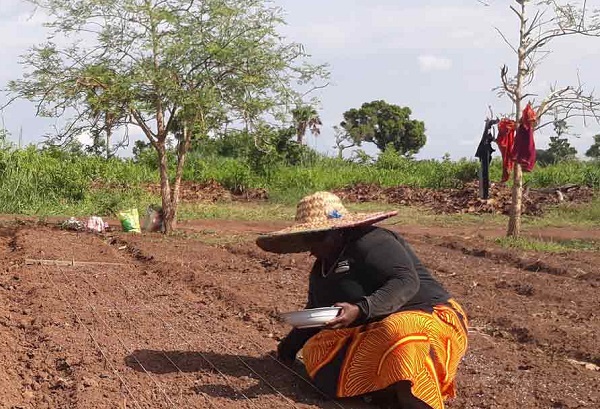
Let’s value our soil today for tomorrow’s food
Today is World Soil Day (WSD), a day set aside to throw a spotlight on the need to protect our soil and ensure it remains productive.
Advertisement
The Day is an international observance dedicated to raising awareness of the importance of soil as a critical component not only of the natural environment, but also to agriculture.
WSD is held annually on December 5 as a means to focus attention on the importance of healthy soil and to advocate the sustainable management of soil resources.
This most people take for granted and it is the reason we see the commemoration of the day as spot on.
We just put seeds and seedlings in the soil and go to sleep and they germinate or grow when the soil is not destroyed and is high yielding. On the other hand, when the soil quality is destroyed, we spend so much on fertiliser.
Recently, the government spent around GH¢20 7million on about 3.6 million bags of fertiliser in its subsidy programme.
We have sunk a lot of boreholes and constructed water systems for millions of people, especially those in hard-to-reach places and they get potable water, yet we treat the soil that provides us with so much life anyhow.
The FAO Conference unanimously endorsed World Soil Day in June 2013 and requested its official adoption at the 68th UN General Assembly. In December 2013, the UN General Assembly responded by designating December 5, 2014, as the first official World Soil Day.
Indeed, as stated by the United Nations, our planet’s survival depends on the precious link between soil and water. Over 95 per cent of our food originates from these two fundamental resources.
Soil water, vital for nutrient absorption by plants, binds our ecosystems together. This symbiotic relationship is the foundation of our agricultural systems.
However, in the face of climate change and human activity, our soils are being degraded, putting excessive pressure on our water resources. Erosion disrupts the natural balance and reduces water infiltration and availability for all forms of life.
Improved soil and water management enhances the land's capacity to withstand extreme climate events such as droughts, floods and sand or dust storms.
It is the reason we urge sustainable soil management practices such as minimum tillage, crop rotation, organic matter addition and cover cropping, to improve soil health, reduce erosion and pollution, and enhance water infiltration and storage.
These practices also preserve soil biodiversity, improve fertility and contribute to carbon sequestration (managing the land so that the soil absorbs and holds more carbon), thereby playing a crucial role in the fight against climate change.
WSD 2023 which is on the theme: “Oil and water, a source of life” and its campaign aim to raise awareness of the importance and relationship between soil and water in achieving sustainable and resilient agrifood systems.
While WSD is a unique global platform that not only celebrates soils but also empowers and engages citizens around the world to improve soil health, we must always note that once soil quality is damaged through practices such as the excessive use of inorganic fertiliser, overcropping, pollution and harmful leachate, it is difficult to restore.
Slash and burn before farming are harmful to the soil. They result in soil erosion and accompanying landslides, water contamination and reduce organic matter content in soils.
A healthy soil plays a crucial role as a natural filter, purifying and storing water as it infiltrates into the ground.
According to the FAO, rain-fed agricultural systems account for 80 per cent of croplands, contributing to 60 per cent of the global food production. These systems rely heavily on effective soil moisture management practices.
Implementing sustainable soil management practices enhances water availability for agriculture. Healthy soils, enriched with organic matter, play a crucial role in regulating water retention and availability.
The efficient use of quality water, promoting the sustainable use of fertilisers and pesticides, employing appropriate irrigation methods, improving drainage systems, controlling pumping, and monitoring soil and groundwater salinity levels are essential to maintaining sustainable agricultural practices.
Integrated soil and water management practices provide essential ecosystem services, support life on earth and enhance ecosystem resilience.
We, thus, urge all stakeholders, the Ministry of Food and Agriculture and all its agencies to put in place deliberate policies to ensure our soil is protected from pollution so life is sustained.




